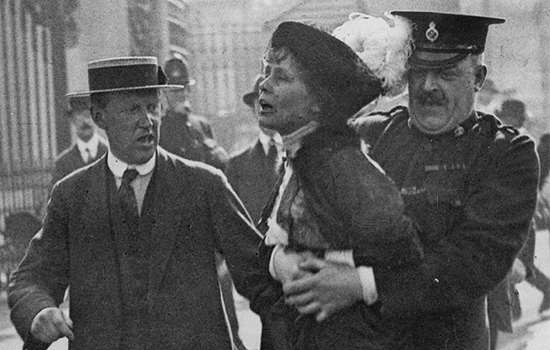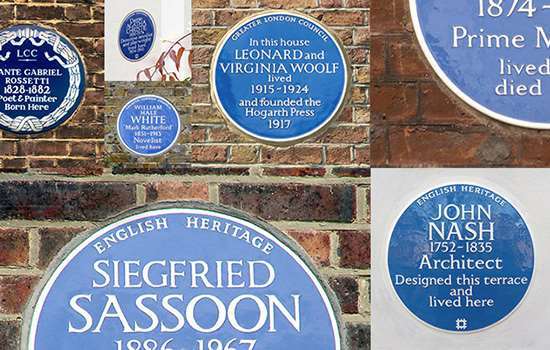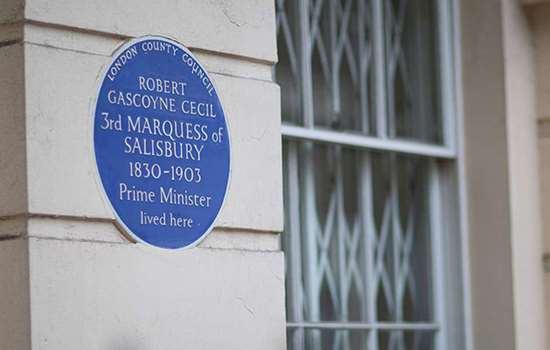MILL, John Stuart (1806-1873)
Plaque erected in 1907 by London County Council at 18 Kensington Square, South Kensington, London, W8 5HH, Royal Borough of Kensington and Chelsea
All images © English Heritage
Profession
Philosopher
Category
Economics and Statistics, Philosophy, Politics and Administration
Inscription
JOHN STUART MILL 1806-1873 Philosopher Lived Here
Material
Encaustic
John Stuart Mill was the major British philosopher of the 19th century, whose thinking profoundly influenced subsequent debate on politics, society and individual liberty. Throughout his life he championed individual freedom and social reform, including equal rights for women.
KENSINGTON SQUARE
Mill moved to 18 Kensington Square with his mother, Harriet (1782–1854), and eight younger brothers and sisters in 1837, following the death of his father, the philosopher James Mill. Here, John Stuart Mill continued to tutor his siblings according to the demanding curriculum prescribed by his father, and it was at Kensington Square that he wrote two of his most important works, A System of Logic (1843) and Principles of Political Economy (1848), the overarching themes of which were social progress and the relation of the individual to society.
One visitor to the house, the diarist Caroline Fox, recalled Mill's ‘charming library and … immense herbarium; the mother so anxious to show everything, and her son so terribly afraid of boring us’.
FAMILY RIFT
The close-knit family was blown apart in 1851 when Mill became engaged to the recently widowed Harriet Taylor, with whom he had been in love for more than 20 years. Mill took umbrage at – as he perceived it – the reluctance of his family to acknowledge his new wife, and the drawing room at number 18 was the scene of a painful attempt at reconciliation.
The house dates from 1686–7 and was built by Stephen Emmett, a bricklayer of the parish of St Margaret’s, Westminster. Mill and Harriet moved to 113 Blackheath Park in Greenwich in 1851, but the Kensington Square house continued to be associated with the Mill family until about 1857.


